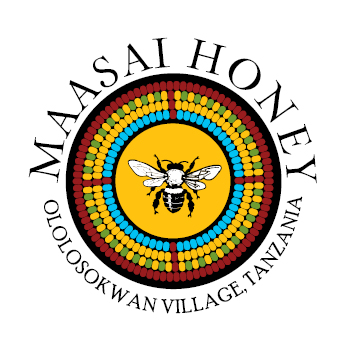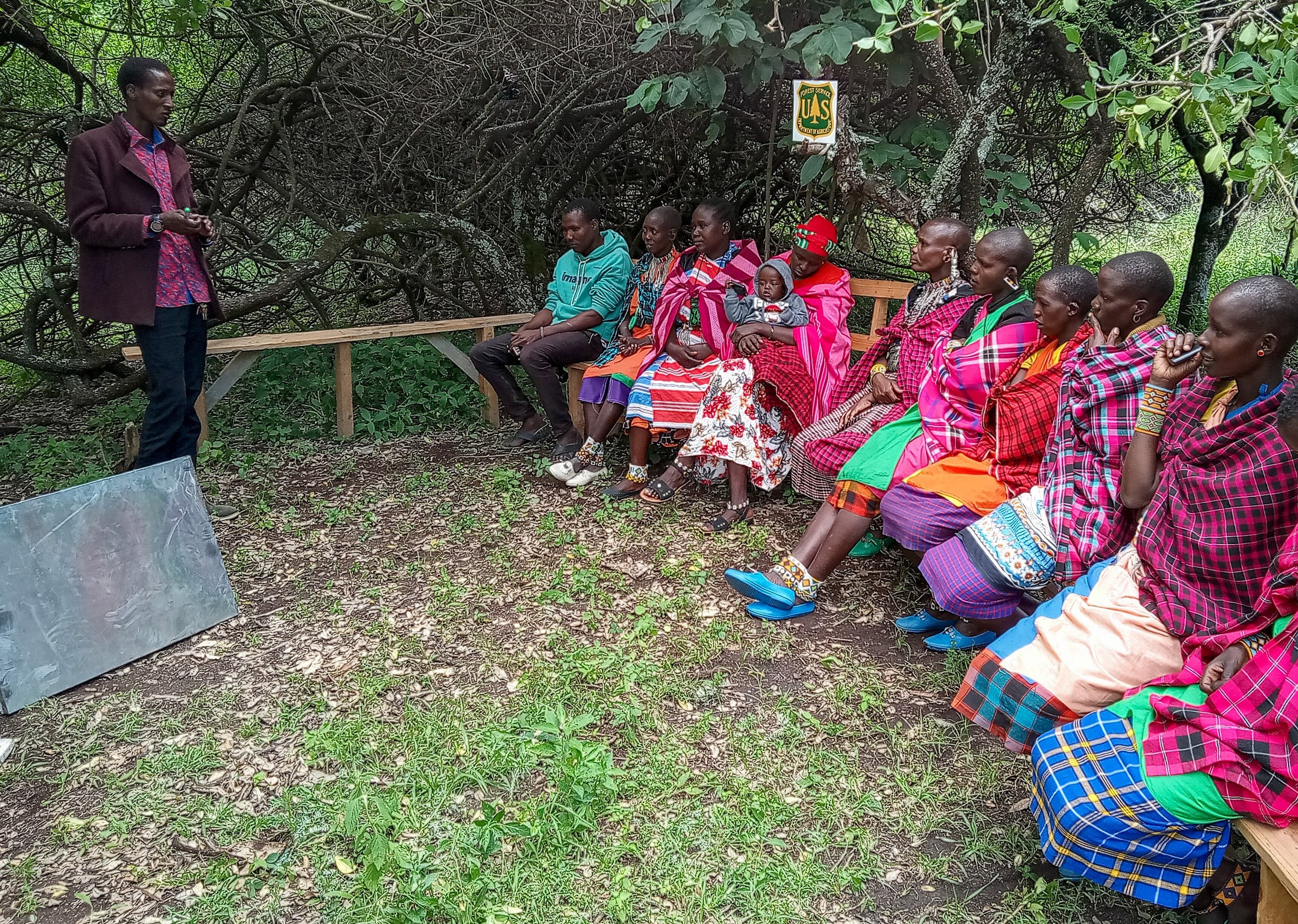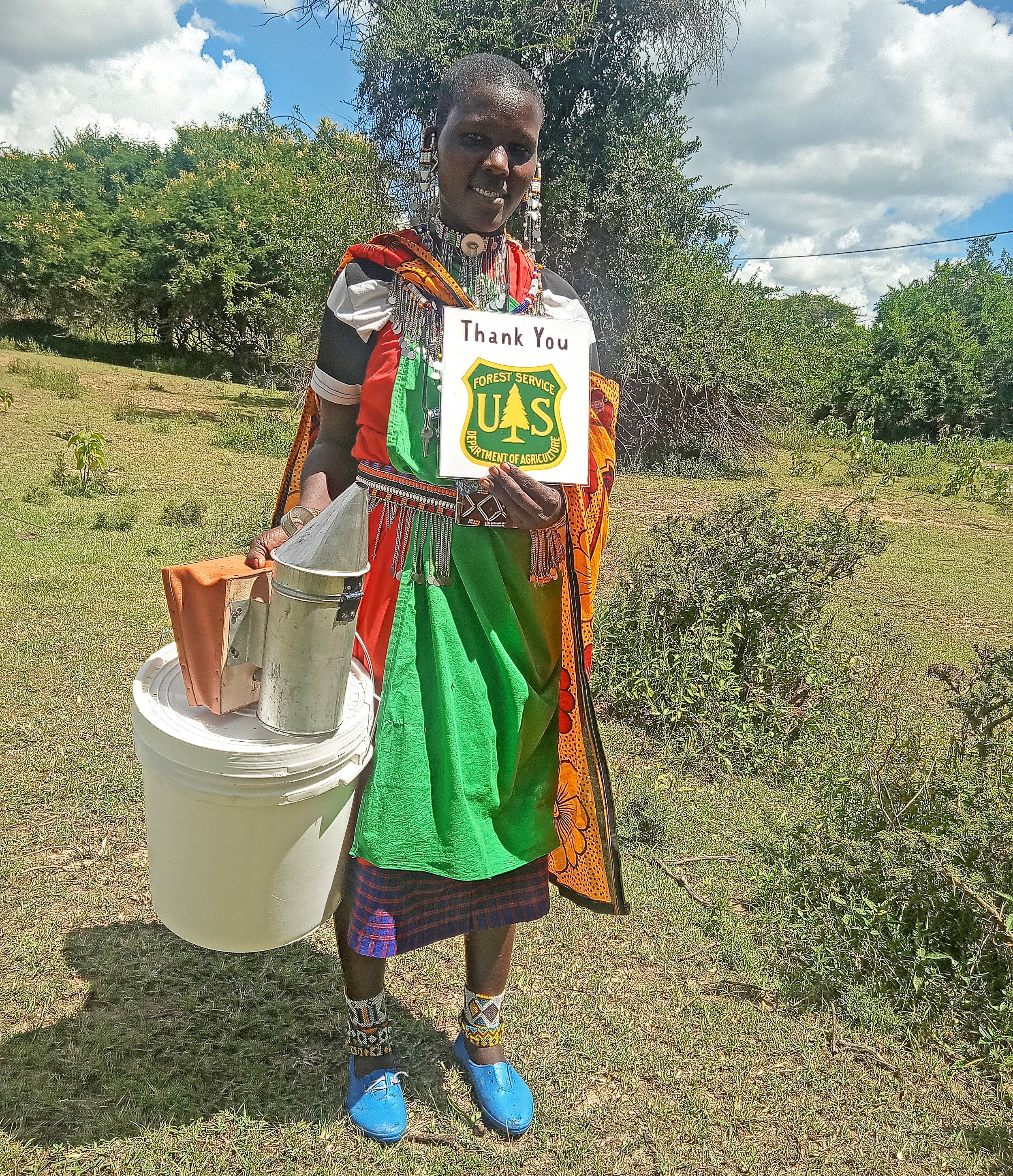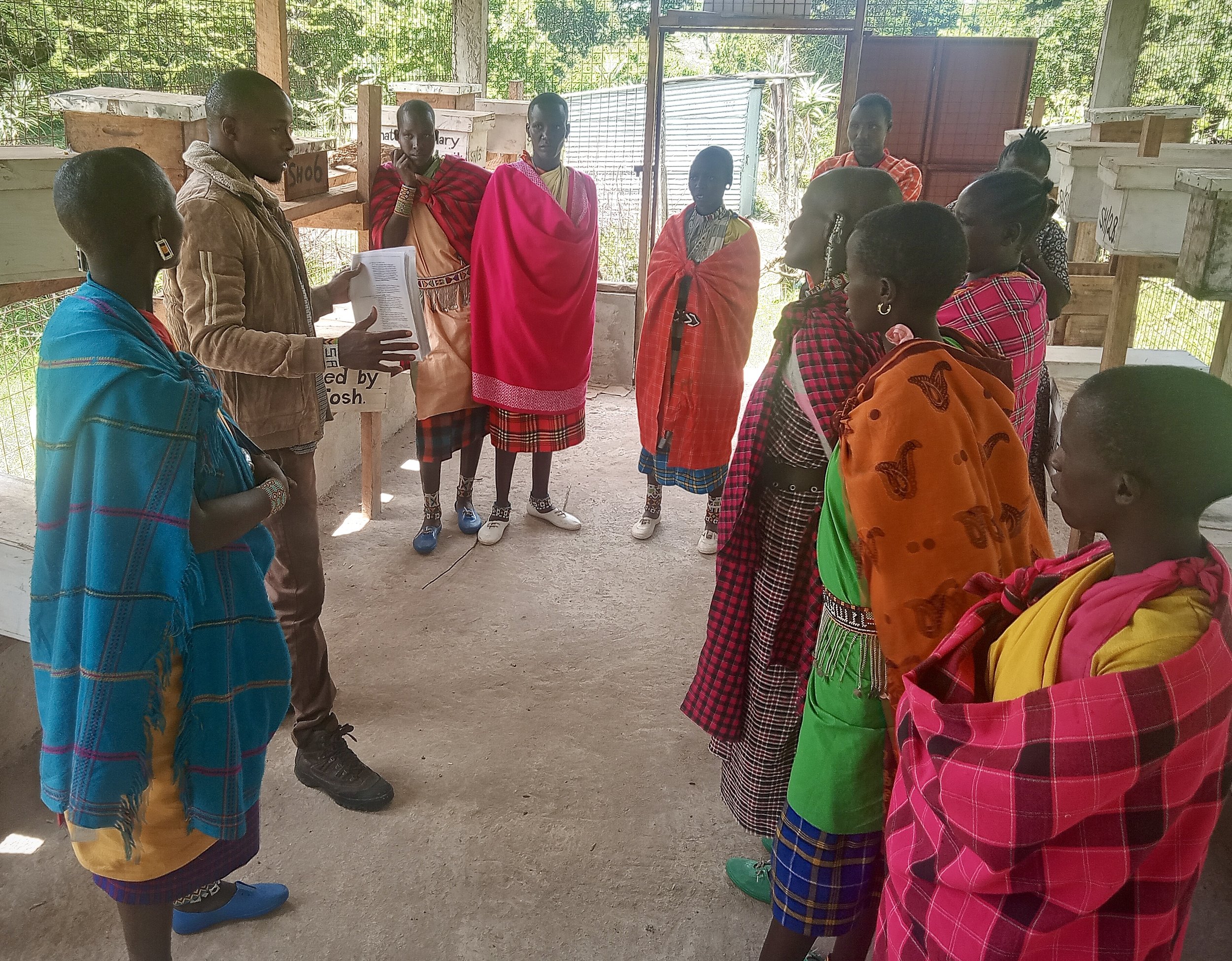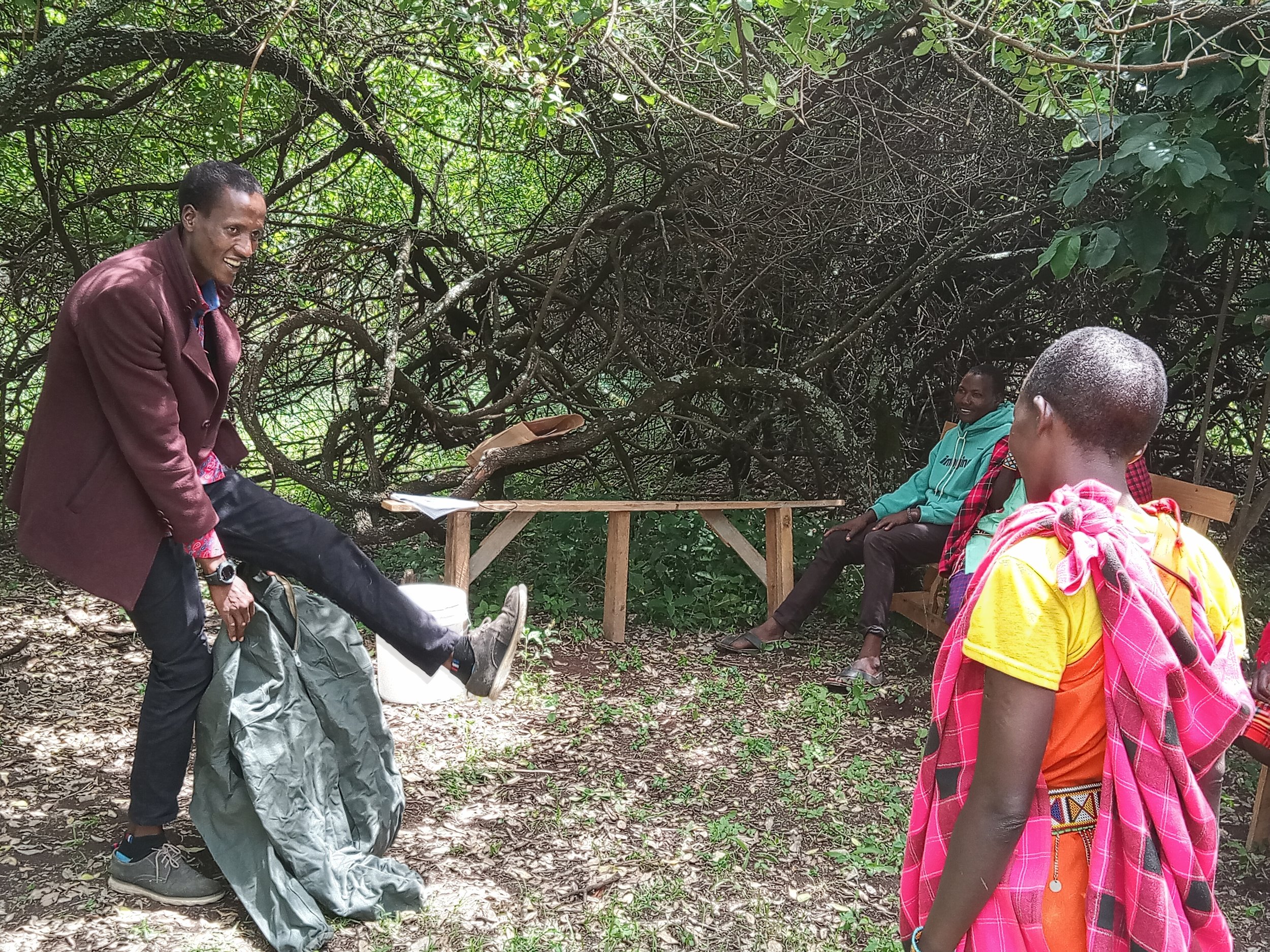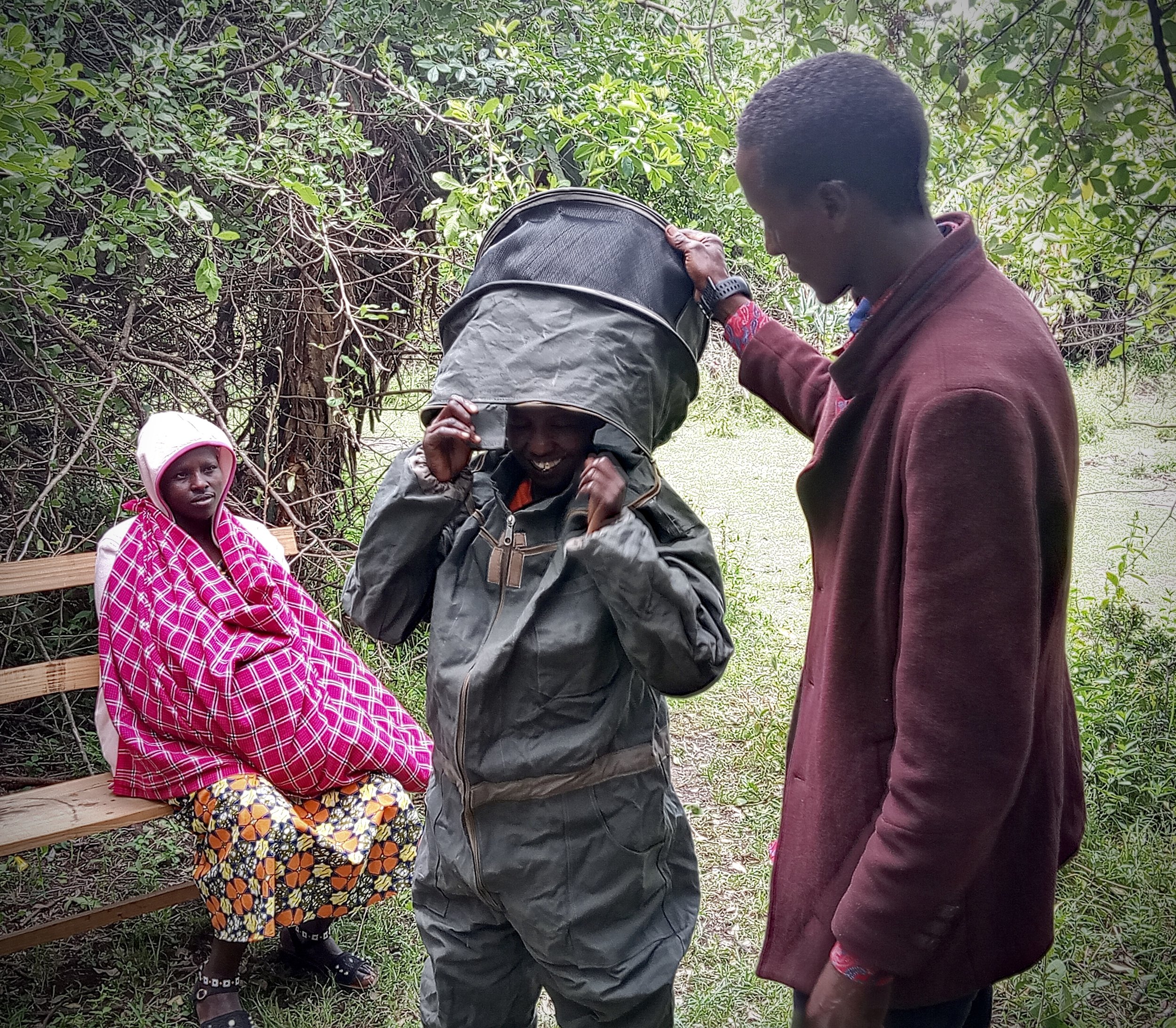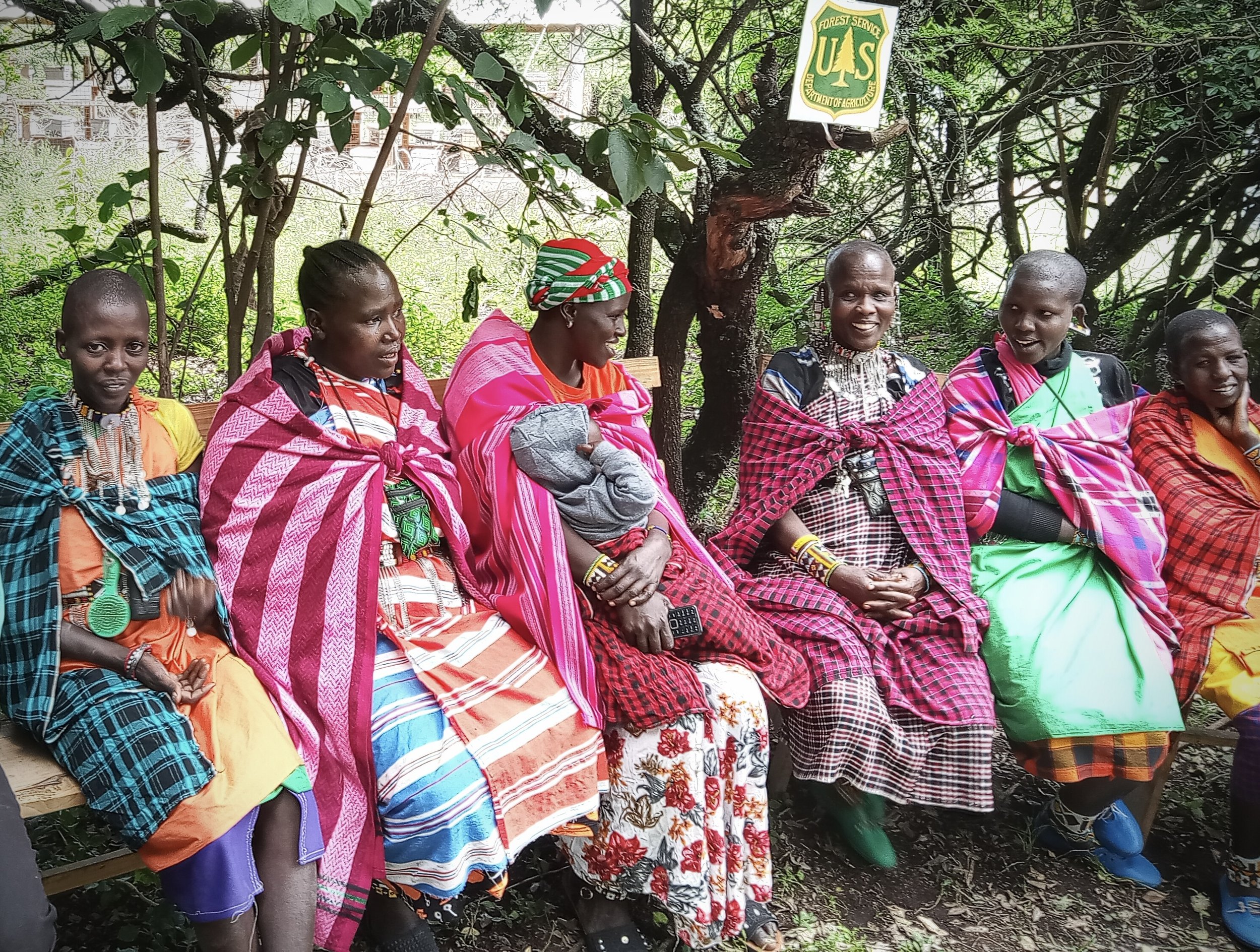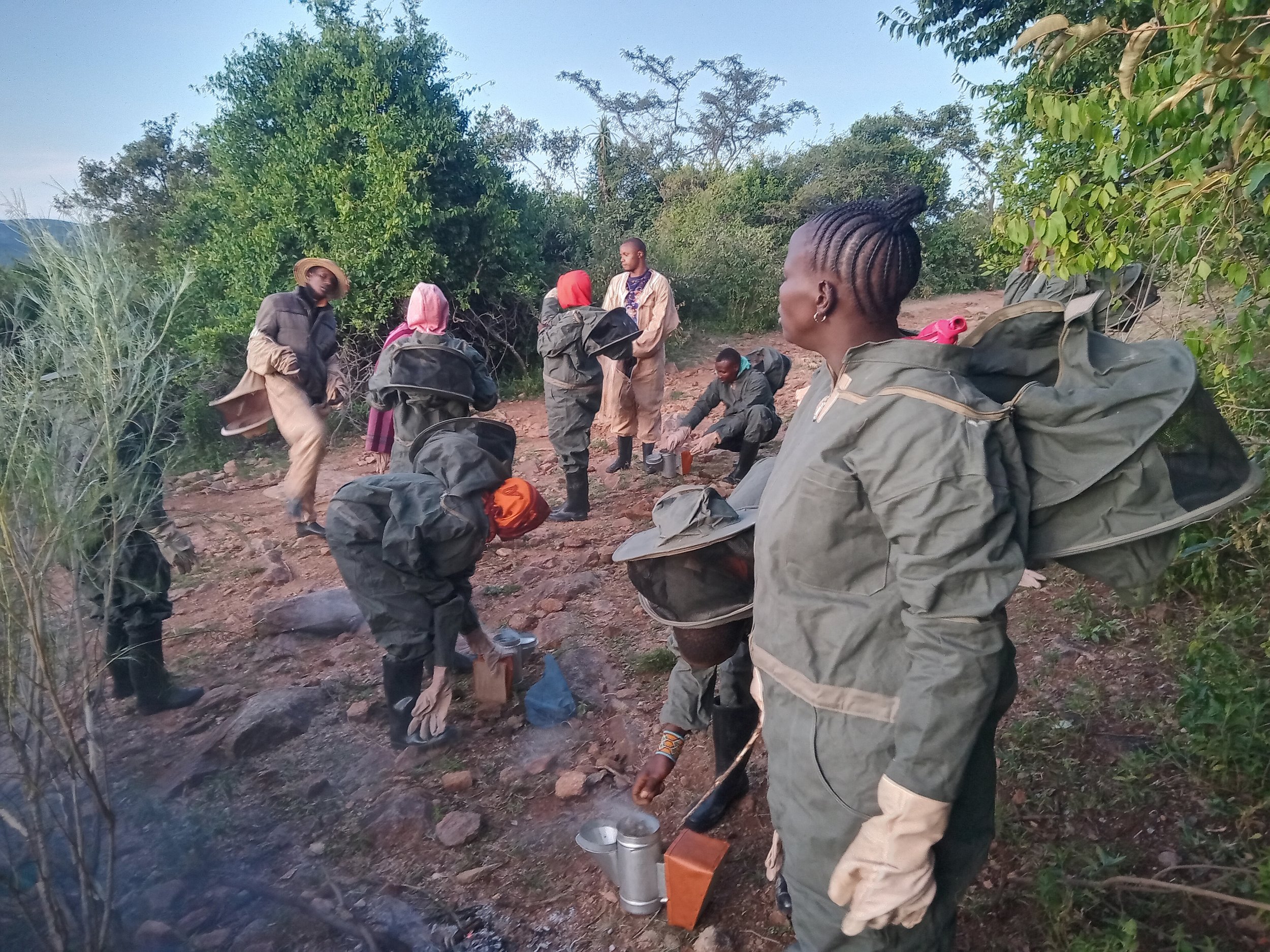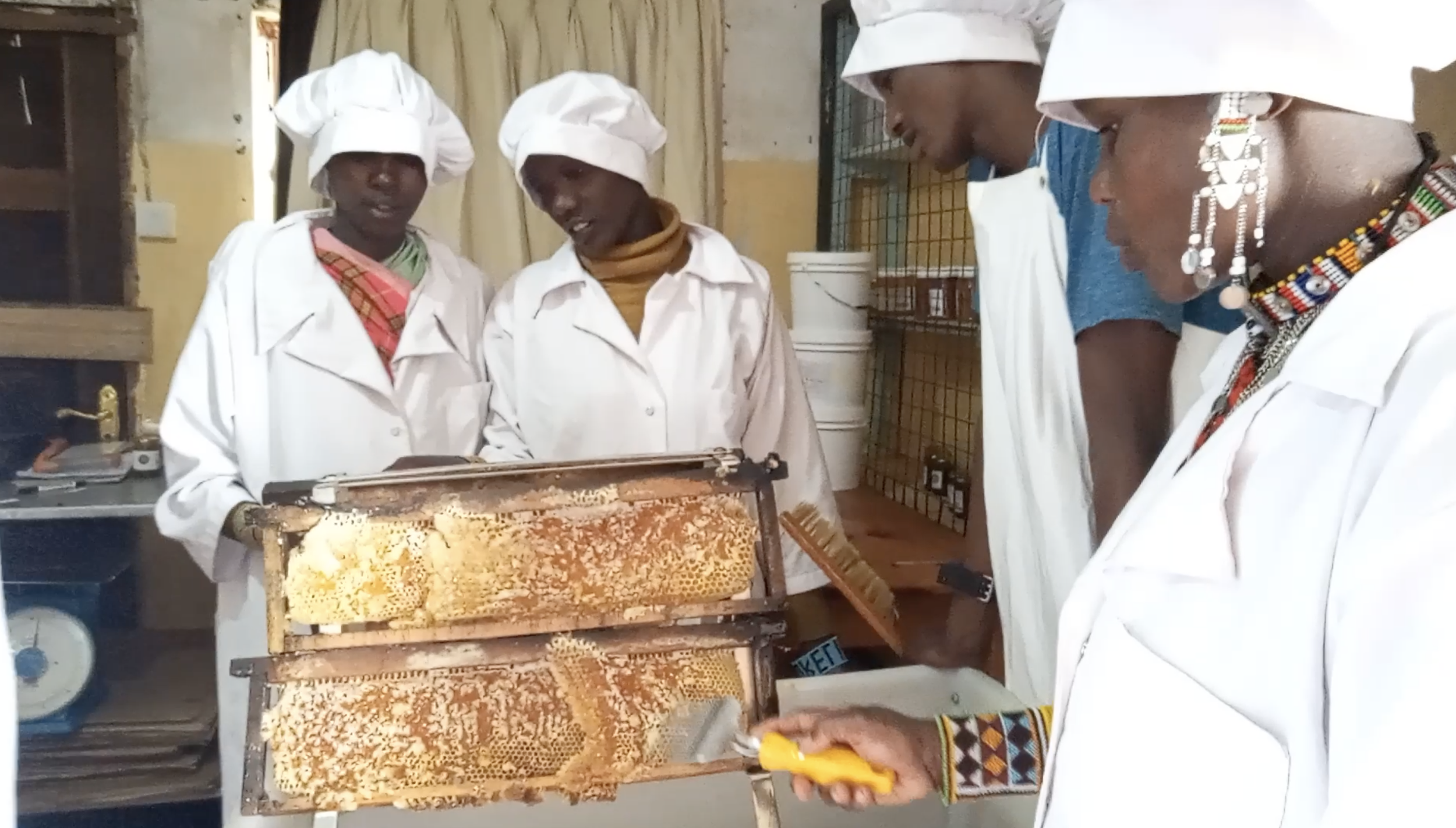Beekeeping Training continues with the US Forest Service
Thanks to the US Forest Service, ten residents from Ololosokwan Village took part in a two-week beekeeping training course. Professional beekeepers from Northern Tanzania Beekeeping Company conducted the training, educating participants on everything from apiary selection to honey harvesting and processing. The trainees, which included 9 women and 1 man, came from all 4 of the sub-villages of Ololosokwan - Sero, Mairowa A, Mairowa B, and Ololosokwan. Trainees were selected in cooperation with the village leaders, in order to identify participants that would most benefit from the opportunity.
The course consisted of 6 theoretical sessions as well as 4 practical training sessions. During practical sessions, trainees were able to open hives and observe the inspection process. They were also able to witness Maasai women beekeepers successfully harvesting honeycomb from their hives, then they participated in the honey extraction process. This activity not only gave them knowledge of honey harvesting practices, but was also an empowering example for them to see their fellow village residents successfully harvesting and selling their honeycomb.
The training was finalized with a graduation ceremony where students received their hives, gears, and bee suits and also celebrated World Bee Day (May 20th). Participants spoke about their gratitude for the opportunity and words were shared about the importance of bees, not only for beekeeping, but also as an important element of the regional wildlife.
Here are some photos from the training as well as videos!
Beekeeper Francis shows trainees the difference between unripe honeycomb and honeycomb that is fully ripened and capped over. Lessons are conducted in Maa, the language of the Maasai, so that all participants can understand.
Participants perform on World Bee Day to honor everyone who has made the training possible!
